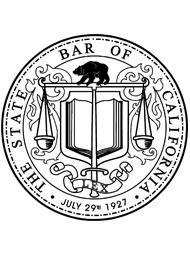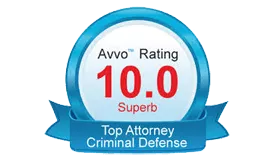California Criminal Defense Lawyers

Among the 10 Best in California
LibertyBell Law Group has earned recognition as one of the “10 Best Law Firms in California”
for client satisfaction. Founding attorney Gina Tennen is a nationally respected legal
advocate known for relentless defense and client dedication.

Nationally Ranked Trial Lawyers
Our firm has been nationally ranked by Attorney & Practice Magazine and listed among the
Top 100 Trial Lawyers by The National Trial Lawyers—proof of elite courtroom skill and
strategic legal excellence.

Hundreds of Successful Outcomes
With hundreds of wins across major cases—including the California Supreme Court—our
attorneys deliver results. From complex felony defense to sensitive charges, we know how
to protect your freedom and future.
Criminal Defense Attorneys
Every case begins with listening. We take time to understand the full picture—your goals, your concerns, and every detail that matters. Your voice sets the direction for our defense.
Our legal team crafts a custom defense using proven methods and creative insight. We analyze every angle, identify legal leverage, and prepare for battle—before we ever step in court.
Our attorneys are recognized for courtroom presence and poise. We arrive fully prepared to advocate fiercely, negotiate strategically, and assert your rights every step of the way.
Whether by dismissal, deal, or victory at trial, our goal is your peace of mind and freedom. We don’t just fight—we finish strong and help you get your life back on track.
California Sex Crimes Defense Attorneys
At LibertyBell Law Group, we provide aggressive legal defense for individuals accused of sex offenses in California. Whether you’re facing charges in Los Angeles, Orange County, or statewide, our experienced criminal defense lawyers fight to protect your freedom, reputation, and future.
Rape & Sexual Assault
We defend those accused of rape (Penal Code 261), sexual battery (PC 243.4), and spousal rape (PC 262). These cases are often based on accusations without physical evidence. We challenge inconsistencies, consent issues, and false reporting.
Statutory Rape
Consensual relations can still lead to prosecution under PC 261.5. If you’re over 18 and involved with someone underage, this charge can carry serious consequences, including jail and registration as a sex offender. We aggressively defend against false or exaggerated allegations.
Lewd Acts with a Minor
Charges under PC 288 (Lewd Acts with a Minor) are among the most severe in California. These cases often hinge on testimony alone. Our attorneys bring in expert witnesses and forensic analysis to uncover the truth.
Online Solicitation & Internet Sex Crimes
We handle all types of digital and online sex crime charges including PC 288.3 (Contacting a Minor), PC 288.4 (Arranging a Meeting with a Minor), and entrapment-based sting operations. Many defendants are unaware they were communicating with law enforcement.
Child Pornography Charges
Facing a PC 311 charge for possession or distribution of child pornography? These offenses carry long prison terms and mandatory registration. We utilize digital forensics and file origin tracing to challenge evidence.
Indecent Exposure
PC 314 covers conduct such as public exposure or flashing. A conviction can lead to lifelong sex offender status. We fight for charge reductions or dismissals, especially in mistaken identity cases.
Failure to Register (PC 290)
Anyone who fails to register as a sex offender in California under PC 290(b) may face felony charges. We provide post-conviction relief and help reduce or terminate registration obligations under SB 384.
False Accusations & Pre-File Investigations
If you’ve been falsely accused or are under investigation, now is the time to act. Early intervention can prevent charges from being filed at all. Our attorneys manage law enforcement contact and assert your rights from day one.
Post-Conviction Relief & Tier Reduction
We help clients petition for Certificate of Rehabilitation, SB 384 Tier Adjustments, and removal from California’s Megan’s Law website when eligible.
Led by Renowned Trial Attorney Gina Tennen
Gina Tennen is a nationally acclaimed legal strategist featured in Time Magazine’s “100 Most Influential People.”
Her unmatched preparation and courtroom presence deliver results when they matter most.

- Decades of trial victories
- Respected by media & peers
- Featured on CNN, Fox News, LA Times
- High-profile case expertise





The California Criminal Court Process
Understanding the 7-Stage Criminal Justice System – Expert Defense at Every Step
Most serious cases, like felonies, are handled by California Superior Courts in a similar manner. The federal legal process is also comparable, but there may be different deadlines and separate government agencies that handle cases.
Stage 1: The Offense & Investigation
In some cases, a police officer may actually witness a criminal act. However, in many cases, the police are called, and they conduct an investigation. This consists of interviewing witnesses and collecting evidence.
Stage 2: Arrest & Booking
After being arrested, the accused is taken to jail for booking. Personal information will be collected, including fingerprints and photographs (“mug shot”).
The police may not read an arrestee their Miranda rights immediately. They aren’t required until interrogation.
The police will send information about the situation to the district attorney’s office. If the D.A. decides to press charges, an arraignment will be scheduled. If not, then you will be released.
Stage 3: Arraignment
The arraignment is the first formal court appearance for the accused. They will be read charges and have a chance to enter a plea (not guilty, guilty, or no contest). If you plead guilty or no contest, a sentencing hearing will be scheduled. If you plead not guilty, the judge will consider bail.
You have a right to hire a defense attorney to represent you at all stages of the criminal justice process. If you can’t afford a private attorney, a public defender will be assigned to you. Hiring the best attorney you can find will save you stress in the long run, and you may get a better outcome overall.
Stage 4: Bail Hearing
The bail hearing may take place during the arraignment, or the judge may schedule it at a later date. You may present factors to reduce or eliminate your bail. Before altering your bail, the judge will consider:
- Your criminal history
- The seriousness of the offense
- The specific facts of the case
- Your community ties
- Your likelihood to return to court
- Public safety if you are released
Stage 5: Pretrial Process
If you plead not guilty, your California criminal defense attorney will prepare your case for trial. They will appear at court conferences and hearings on your behalf, file motions to get your case dismissed or evidence excluded, exchange discovery, and negotiate a plea bargain.
Stage 6: Trial
Criminal cases that are not resolved during the pretrial process will proceed to a California Superior Court. There are two types of trials:
- Bench trials: The judge hears the case and makes the ultimate decision of guilt or innocence
- Jury trials: 12 of your peers will listen to the evidence and determine the outcome
You have a right to a jury trial, and your California criminal defense lawyer can make sure you get one.
Stage 7: Appeal
LibertyBell Law Group will always fight to win at trial. However, if you are convicted, that is not the end. You can appeal your case to a higher-level court and challenge any legal errors that were made.
AWARDS AND ASSOCIATIONS
Frequently Asked Questions
-
What does a criminal defense attorney do?
A criminal defense attorney helps the defendant navigate the complex legal system and get the best possible outcome for their case. They do extensive research to ensure that they have a full understanding of their client’s case so they can come up with the best defense possible.
Defense attorneys will also investigate the cases against their clients so they can argue against it more effectively. In some cases, they’ll even negotiate with the prosecution to try to get a deal that will benefit their clients.
In short, a defense attorney is a professional who will provide unique legal insight, do endless legwork, and negotiate on their client’s behalf.
-
How much does a criminal lawyer cost?
Every defense attorney is different, and there are endless payment plans and styles. Some attorneys take retainers, some charge a flat fee, and others charge by the hour. Fees may vary according to the field of law, the lawyer’s experience, the seriousness of the charge, and the complexity of the case.
One of the best ways to figure out how much your case will cost is by consulting with a lawyer and requesting a quote to get a full picture of how much legal representation will cost.
Those who cannot afford their own attorney will be assigned one by the court. However, these attorneys, known as public defenders, are often stretched thin across numerous cases. They may not have as much time and energy for your case as a private attorney. If possible, it’s always best to invest in your case to avoid jail time and other concerns.
-
Do defense lawyers get paid if they lose?
It depends on the fee arrangement your lawyer uses, but generally speaking, yes. If your lawyer gets paid hourly, with a retainer, or with a flat fee, then they will get their payment regardless of the case outcome.
However, contingency fees are different. With this type of fee, there’s no need to pay until the end of the case, and the lawyer takes a percentage of the money you receive in court or from an out-of-court settlement.
Even with contingency fees, you may be responsible for court fees and lawyer fees that fall outside of the contingency fee agreement. Make sure to clarify all the payment details with your lawyer before you begin working with them officially.
-
When can you recover attorney fees?
Both parties are responsible for paying their attorney fees unless there’s a relevant law or contract that states that one can recover their attorney fees. If there are no attorney’s fees provided by law or contract, then they will not be recoverable.
However, on occasion there is a law or contract that states that the winning party gets their attorney fees reimbursed. The losing party will need to handle the opposition’s legal fees in addition to any damages they owe, as determined by the court.








